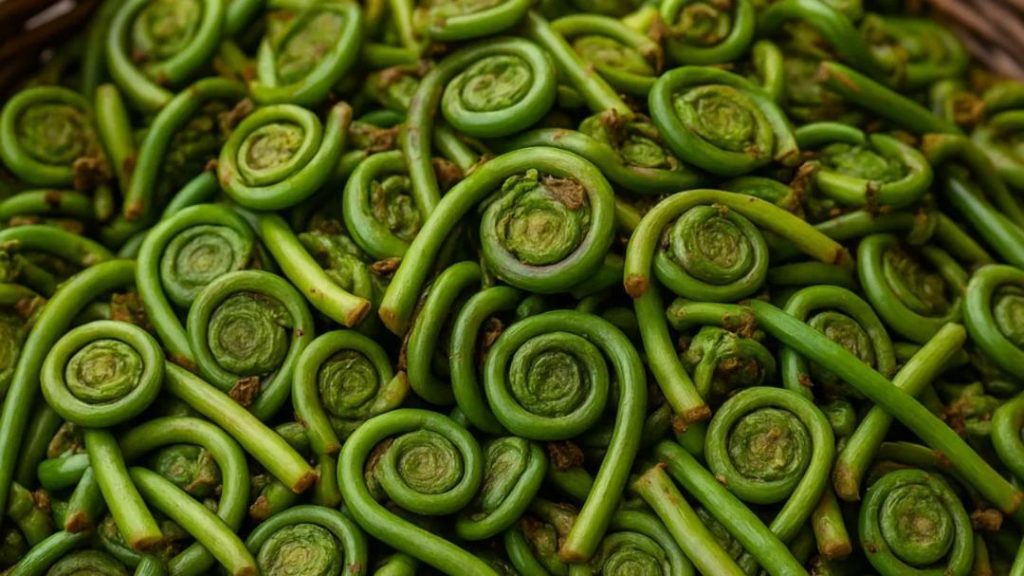
Lingad, a Monsoon Fern, Boosts Immunity and Bone Health
As the monsoon season arrives in the Himalayas, a unique and nutritious delicacy becomes available to the locals. Lingad, also known as fiddlehead fern, is a young, coiled shoot that is foraged during this time and is a staple in many traditional Himalayan recipes. Not only does it add a unique flavor to dishes, but it is also densely nutrient-rich and packed with health benefits. In this blog post, we will delve into the world of Lingad and explore how it can boost immunity and support bone health.
What is Lingad?
Lingad (Diplazium esculentum) is a type of fern that grows in the Himalayan region. It is commonly known as Lengdu, Dhekia, or Nigro in local dialects. The fern is harvested during the monsoon season when it is still young and curled, before it matures and becomes fibrous and unfit for cooking. This unique harvesting process is what sets Lingad apart from other types of ferns, making it a true delicacy in the region.
Nutritional Profile
Lingad is a nutrient-rich food that is packed with vitamins, minerals, and antioxidants. It is an excellent source of:
- Fiber: Lingad contains both soluble and insoluble fiber, which can help regulate digestion and prevent constipation.
- Protein: It is a good source of plant-based protein, making it an excellent option for vegetarians and vegans.
- Vitamin A: Lingad is rich in beta-carotene, a precursor to vitamin A that helps promote healthy vision, immune function, and skin health.
- Vitamin K: It is an excellent source of vitamin K, which plays a crucial role in blood clotting and bone health.
- Antioxidants: Lingad contains a range of antioxidants, including flavonoids and phenolic acids, which can help protect against oxidative stress and inflammation.
Health Benefits
The unique combination of nutrients and antioxidants in Lingad makes it an excellent food for overall health and wellness. Some of the key health benefits associated with Lingad consumption include:
- Boosted Immunity: The high levels of antioxidants and vitamin A in Lingad make it an excellent immune-boosting food. It can help protect against infections and diseases.
- Bone Health: The high levels of vitamin K in Lingad make it an excellent food for bone health. Vitamin K helps regulate calcium metabolism, which is essential for bone density and strength.
- Anti-Inflammatory Effects: The antioxidants and flavonoids in Lingad have anti-inflammatory properties, which can help reduce inflammation and oxidative stress in the body.
Traditional Uses
Lingad has been a staple in traditional Himalayan cuisine for centuries. It is commonly used in a variety of dishes, including soups, stews, and stir-fries. The fern is often cooked with garlic, ginger, and chilies to add depth and flavor to the dish.
In addition to its culinary uses, Lingad is also used in traditional medicine in the Himalayas. It is believed to have anti-inflammatory and antibacterial properties, making it an excellent treatment for a range of ailments, including fever, cold, and cough.
Conclusion
Lingad, or fiddlehead fern, is a unique and nutritious delicacy that is foraged during the monsoon season in the Himalayas. Its dense nutrient profile and antioxidant properties make it an excellent food for overall health and wellness. From boosting immunity to supporting bone health, Lingad is a true Himalayan gem that deserves to be celebrated.
Source:
Krishijagran is a leading agricultural news and information portal that provides the latest updates on farming, agriculture, and related industries. Their blog is a treasure trove of information on various agricultural topics, including crop management, farm equipment, and disease management.



